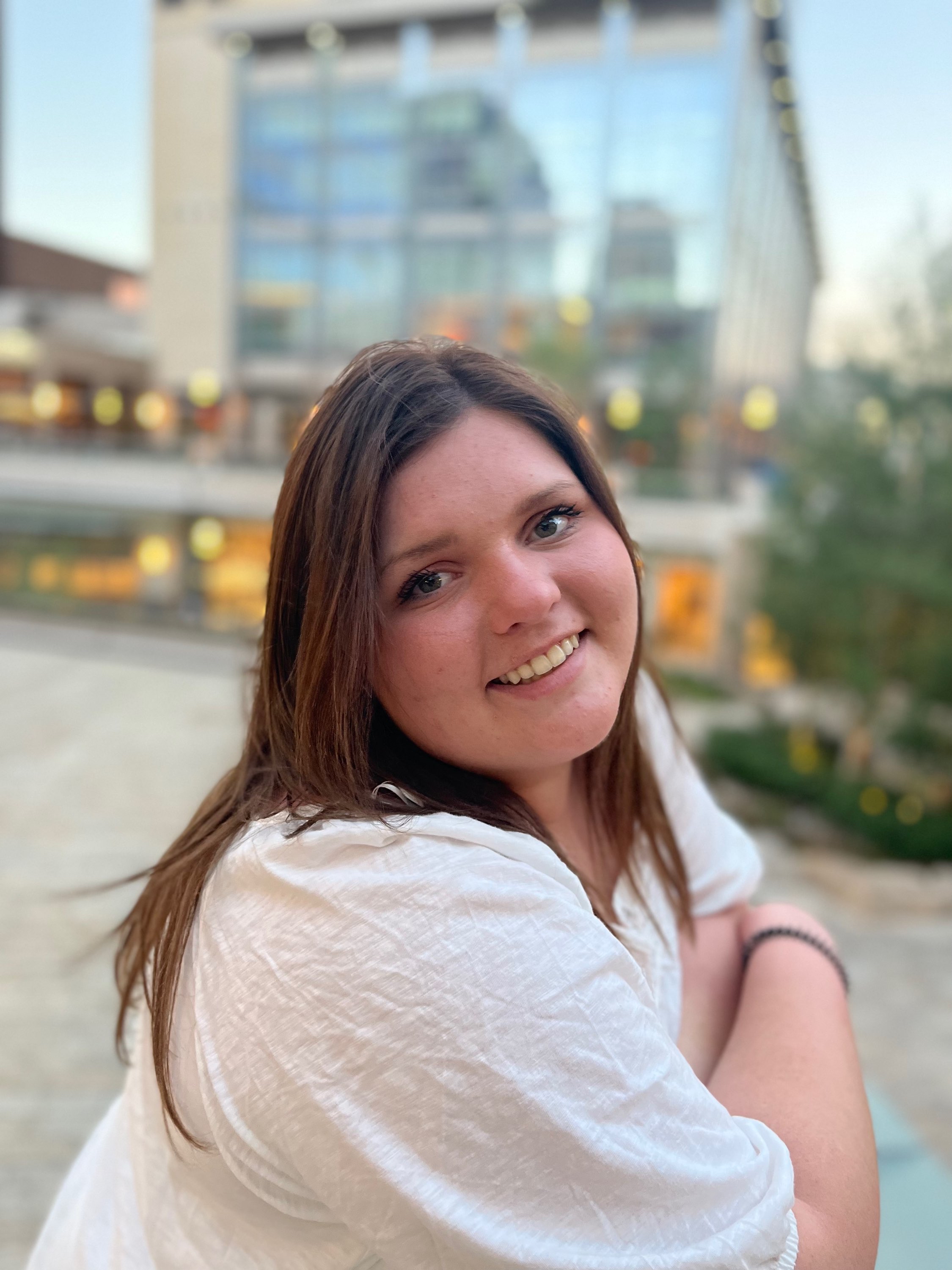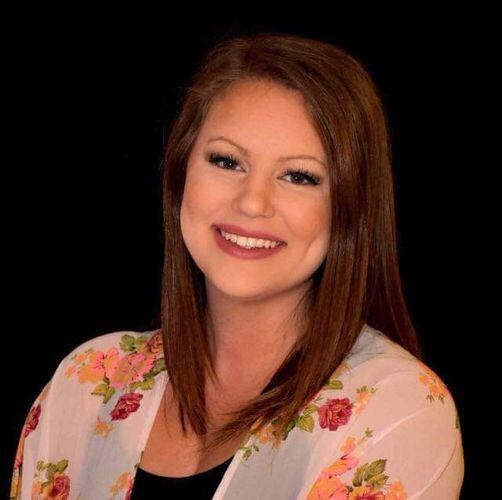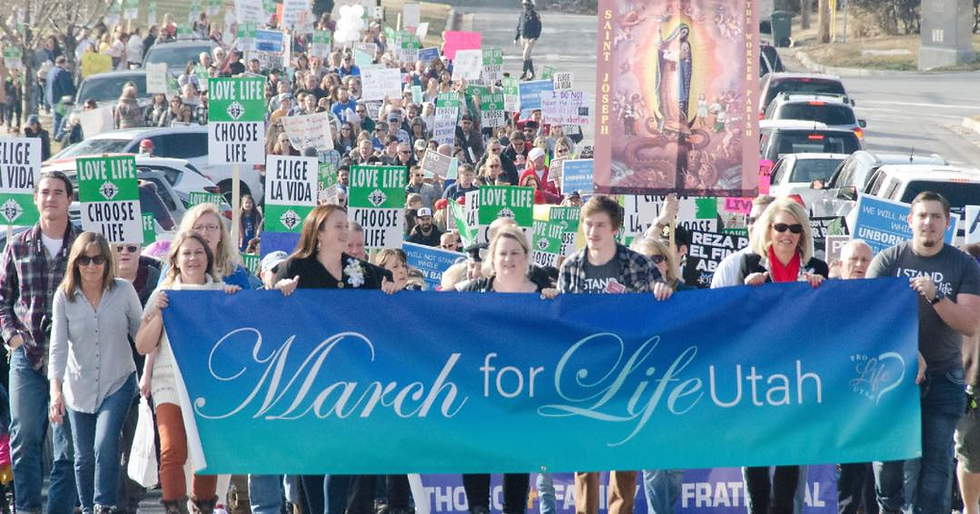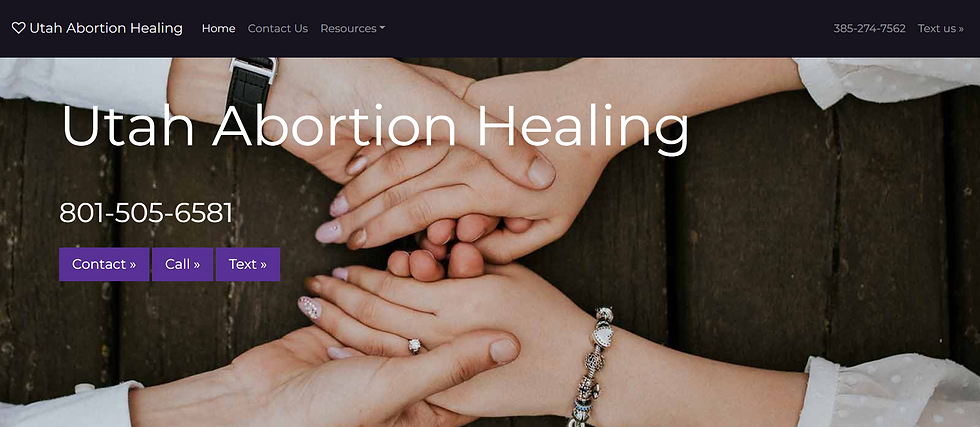Abortion Issues and Healing: a conversation with Lindsey Tafengatoto
- Chloe Chandler

- Dec 22, 2023
- 12 min read
Updated: Mar 20, 2024
If you’re involved with Pro-Life Utah, odds are you’ve heard Lindsey Tafengatoto’s name at some point. Though we’ve had limited interaction up to this point, I had heard her name several times, often as someone who was willing to share her story. Her name has been seen in op-eds, on YouTube, and in a number of hearings at multiple levels of state government. So, I wanted to know about Lindsey’s story, and was able to interview her.
Though we didn’t discuss this in our interview, some background is important. When she was 17, Lindsey became unexpectedly pregnant. In a 2018 video with Pro-Life Utah, Lindsey expresses the fear and anxiety that she felt when she discovered she was pregnant. She went to her boyfriend at the time, “seeking help and reassurance and guidance.” She says, "I remember hopping in his car and he slid over to me a pamphlet, and I looked at it and I was kind of shocked, because it was an abortion pamphlet.” She says in this video that they fed off of each other’s fears, and she went to get an abortion. After the abortion, she says, she and her then-boyfriend sobbed in the car “knowing we had just killed our baby.” Lindsey told me that she experienced trauma from that procedure and ended up in a dark place that led to some self-destructive decisions.
In the same 2018 video, Lindsey says that she told no one about this abortion. She lived for about three years with this secret weighing on her, when she became unexpectedly pregnant at 19. “But this time,” she says, “it was so much different. This time, I didn’t feel scared when I found out I was pregnant. I felt protected and I felt a little bit peaceful.” Lindsey decided to place her son for adoption. She says in the video that it was during this time that she found God again, and that support from Him, her family, and her counselor was empowering and comforting during this time.
A photo of Lindsey featured in her Salt Lake Tribune op-ed.
“Mom, what would it look like if I kept him? What would it look like if I didn’t–if I placed him for adoption?”
The first question I asked Lindsey during our interview was about those relationships with God, her family, and her counselor–how they impacted her then, and continue to impact her today. She says that her family–including her dad and sisters, but especially her mom, were focused on supporting any decision she made, which she says was the key because she went back and forth. She says, “I knew what I wanted for him [her baby, his name is Lucas] and I knew that I obviously just loved him so much, so I went back and forth with my mom. ‘Mom, what would life look like if I kept him? And what would life look like if I didn’t–if I placed him for adoption?’ and she would just help me think and paint a picture. So during that time, family meant everything. I could lean on them, I could trust them.” Everyone was supportive and, she says, just wanted her to feel loved.
Her counselor, she says, was the same way as she went through the adoption process. She remembers looking through family profiles online and feeling uncomfortable, like she was “shopping” for a family. When she expressed this discomfort, her counselor brought in some families from town and introduced them to Lindsey. This was how she found Lucas’s adoptive family. She says that she felt heard, and this was life-changing. In fact, she is still in touch with the counselor who introduced her to Lucas’s adoptive family. Lindsey says that he reads her articles and watches her videos, and has expressed how proud of her he is and how gracefully she handled the adoption experience from his point of view.
Lindsey says that during being pregnant creates a special connection with God because during the nine months, “it’s just you and God creating this baby.” In her video with Pro-Life Utah, Lindsey says that she prayed “for the first time in a really long time” after finding out she was pregnant for a second time. Her relationship with God, she says, just blossomed from there and continues to be strong.

Lindsey told me, “Each one of these influences I just felt seen by and heard by. And that’s still today.”
“We just need stories.”
Lindsey says that it was about 2017 when she started feeling like she should get involved in something. She was recently married, just had a baby, and was bored at home. She realized she had a unique opportunity with time, so she did some reflection on what she was passionate about.
Lindsey says, “The interesting thing with trauma is sometimes when it happens when you’re young, you really repress and forget experiences and that’s absolutely true of post-abortive trauma.” She says she has seen this in her own experience and the experiences of other women in Utah Abortion Healing. Lindsey says that she started remembering her experience and everything hit her as she was holding her oldest daughter. She had a panic attack because of everything coming back so quickly. She told me that she thinks that having her daughter broke down the walls that she had built up.
“So everything kept flooding back about the abortion I had at Planned Parenthood when I was 17. As a parent, I just could not believe that as a minor I was able to access that medical procedure. And then because it was a botched abortion, I had to go back to the hospital and I was like, ‘Not only did this baby die, but I could’ve died too and my parents would not have known what happened.” Lindsey says that in this moment, she realized, “I’m lucky to be alive, I’m lucky to be here, and I have to share this message.”
Lindsey says she started to search on Google for local pro-life groups and found Pro-Life Utah. When she went to her first meeting, they were still meeting up in person (the organization is too large now, so they do Zoom calls). She says it was “an in-person meeting at the Murray Library, I think. And it was not very many people.” (She then lists a few people that were at the meeting, people who are still involved that I have had the privilege of knowing.) She says that she just kind of sat and listened to everything the whole meeting. After the meeting was over, most people had left, and one volunteer asked, “So what do we really need? What do you need from your volunteers?” Lindsey says that Deanna Holland, who is the Executive Director of Pro-Life Utah, said, “We just need stories. Stories are really helpful, if you have a personal experience with abortion.”
“And I was like, ‘Oh, here it is,’” Lindsey says. Her tone when she talks about how she felt conveys some stress and hesitation. Understandably so. So she told them that she had a story. She says they were “so kind, so sweet, so welcoming.” So she shared her story. She says this was the first time that she had really shared with people, outside of her husband, what had happened. Lindsey says that right then, Deanna asked her if she wanted to speak at the March for Life. She says she half-committed to it, and that’s how she got involved. (The March for Life is an event that Pro-Life Utah puts on every year at the state Capitol, in which the group gathers and walks in quiet protest to abortion. It draws large crowds. The upcoming March for Life will take place on January 20, 2024. More details can be found on Pro-Life Utah’s social media pages @prolifeutah.)
Photo courtesy of March for Life Utah.
Since then, Lindsey says, they’ve done Utah Abortion Healing. She’s worked as a sidewalk advocate outside of Planned Parenthood, which she hasn’t done for a little bit since she has kids and is in school, but she says she wants to get back to it. She is on Pro-Life Utah’s women’s support team now and works directly with five moms that have chosen life over abortion for their children.
Of everything she does, her favorites are working one-on-one and working on the sidewalk. She says, “I’m also involved in healing groups and those are wonderful, but I love working with moms one on one. It’s such a rewarding thing. You can really see their change of heart and it’s just a miracle that you're witnessing.”
“I get to transform with them.”
Of Utah Abortion Healing, Lindsey says that running support groups has helped her feel and understand that there’s such a variety of stories, emotions, and different trauma. She says that some women come to the healing group and can’t even say the word abortion.
So, how does it work? Lindsey says that there is one curriculum that Utah Abortion Healing has settled on to use for this group, called “Forgiven and Set Free.” This is an eight week process, with a different topic that gets discussed each week. Topics include things like anger, depression, trust, personal responsibility, a memorial service, etc. The purpose, as Lindsey told me, is to take women through the process of grief and help them come to terms with what happened, because it’s not usually just the abortion that women have to heal from. Things like abuse or other struggles tend to lead to the abortion decision, so they unpack a lot. The group is completely anonymous and allows women to connect to others who have been through the same thing as them, and regain control over their lives after their trauma makes them feel like they’ve lost control.
She says, “By the end of our eight weeks of bringing everything out into the open, taking personal responsibility, grieving our babies, acknowledging other people played a role in it…there’s so much truth and reality that’s spoken surrounding our abortion that hasn’t been spoken before in our lives. It really just transforms the way that you see life and see that trauma that you went through.”
Lindsey shares that at the end of the eight weeks, the women in Utah Abortion Healing groups name their babies. She says this is so empowering and it helps you grieve, because you see that it was a real human being. Some of the women don’t know that. Lindsey says she definitely didn’t know fetal development when she got an abortion.
“So I get to transform with them. Every healing group I do, I meet someone new and they bring a new perspective to me, and I just feel so lucky to be a part of their experiences.” Each healing group, she says, makes her want to open more healing groups.
Lindsey also gave a great perspective on trauma that I can’t not include. This perspective is helpful for someone struggling after abortion, but also for anyone who is struggling after any traumatic event. She says, “What we say in Utah Abortion Healing is we’re 95% healed. And there’s always a 5% that either gets triggered sometimes or helps you continue to learn. I feel like since we’re going through this life and there are traumas in this world . . . God loves us so much that He made a way for those traumas to connect us back to Him. So that 5% is always connecting me back to God.”
Of the process of getting involved with these groups, Lindsey says that there is a hotline that women call and text. They used to promote the group through social media, but found that it wasn’t really effective because since it’s such deep trauma and something so personal, women didn’t really comment or send DMs. Because of this, they’ve been focusing more on promoting the hotline. This hotline is promoted through social media and through paid ads on Google. Through the hotline, Lindsey says, “I’m able to know if I should work with them one-on-one or if they’re willing to sit in a group together.” She says that she really tries to get them to sit in the group, because she feels like it’s most effective that way.
For every mom that she works with, whether they’re post-abortive or a mom in a crisis pregnancy, Lindsey says what’s most helpful is bringing the truth. “The truth,” she says, “is that you are stronger than you think, and you’re pregnant with a real baby who loves you.” She says that in today’s world, truth is kind of left out [of the conversation surrounding abortion] and a lot of politically charged opinions are left, which is so confusing for anyone to try to navigate. She says that she loves helping women navigate that while telling them the truth about abortion and the procedures.
Witnessing each woman’s strength and change of heart is “beyond words impactful” for Lindsey. It helps her know that she’s making a difference and that she can continue to make a difference. She says that “getting outside of yourself to help others and to serve” is such a positive thing.
There are resources for men too! Lindsey says that she has materials for men that she’s given out. They don’t yet have a healing group for men, but they want to as soon as they can find another man to lead it. Lindsey does feel that it’s important, though, to help men who might be struggling after being part of an abortion. She told me that eight years after her abortion, she reached out to her ex in an effort to find the hospital her abortion had occurred at, so she could get her medical paperwork from it. During this conversation, he told her, “That decision is the biggest regret of my life. I wish we had never done that.” She was shocked to hear this. She says that when you’re going through that trauma yourself, it’s easy to forget that someone else might be struggling with their own trauma from the same event. Because of this, she always tries to keep materials on hand for men.
“Lead with compassion and commonalities . . . then share the truth.”
There has been a lot of contentious debate surrounding how to approach the abortion issue. Different people within the pro-life movement are okay with different levels of aggression towards those on the other side of the issue. So, I asked Lindsey what she thinks is the most effective way to communicate about this issue. She says, “Compassionate truth can change anyone’s life. For that to happen, you really have to sincerely love the person who’s in front of you, be it a group of pro-choice people that you’re talking to or a mom in a crisis pregnancy. You have to have respect and love there, and then you can compassionately tell the truth–that there’s a human baby in the womb that’s suffering because of these procedures that we’re doing. They’re alive and being torn limb from limb. That’s the truth. And I can really sympathize with your situation–that you’re scared, and that you might choose that.” She says that talking in this way is what compassionate truth looks like.

Lindsey spoke of some times when she has participated in a panel in a University of Utah social work class. The social workers there truly see the worst side of people. She says that she always tells them that she can’t blame them for feeling like abortion might be better than having humans suffer through the horrors that they have to see, but that we shouldn’t forget that people get out of that situation and live fantastic lives.
Ultimately, Lindsey says, “We have to lead with compassion and commonalities, find some unity, and then share the truth. That brings the most results because they can feel your sincerity if you go into it like that.”
“Your baby doesn’t hold this against you. . . . You can have deep joy. . . . You’re strong.”
What advice would Lindsey give to someone who is struggling after abortion? She says, “I always tell them that their baby doesn’t hold this against them, that their baby loves them. I know that might be weird for a college paper. But you feel like you did this horrible thing to your child, so I feel like the biggest thing that they should know is that their child doesn’t hold this against them and their child is okay, and it kind of gives them permission to open up to everything else that happened.”
Sometimes, though, she can tell that people aren’t ready to hear that their child is a child. In those situations, she tells them, “You can have deep joy after an abortion.” Sometimes, when you have a deep trauma like this, you don’t allow yourself to feel truly happy. She firmly believes that you can have joy–you don’t have to regret your whole life.
To young people who find themselves or their partner unexpectedly pregnant, Lindsey says, “The first thing I do is justify their feelings because they’re feeling terrified . . . so I really make it a point to acknowledge that because I’ve been there and it’s terrifying. So it’s not good to be like, ‘This is fine. You’re fine.’ That’s not very welcoming, nor is it true. It is scary. I want to acknowledge the truth that this is terrifying and that’s okay, and you’re so much stronger than you think you are. If I can do this, you can do this. . . . You’re going to impress yourself, and you’re strong.” She says that encouraging them after justifying their emotions is extremely impactful. Unexpected pregnancy is going to change your life, but you’re going to be okay.

To someone looking to get involved in the movement, Lindsey’s advice is that “there is a place for anyone that wants to get involved, especially here in Utah.” Pro-Life Utah has so many different avenues that you can take to get involved. So, Lindsey says, you have to have the patience to find your niche. But you can be a trailblazer and transform the pro-life scene in Utah. Whatever your mindset is, you can bring that into your activism.
Final Words
Lindsey says that she is grateful that this conversation–the conversation around abortion, the trauma that comes from it, and finding healing–is still happening. She is a firm believer that we need to talk about these issues in classes, in the public sphere, wherever we are. “As long as we keep [talking about these issues], we can change hearts and minds, and changing hearts and minds is what changes a society and ultimately a nation.” The abortion issue didn’t end when Roe v. Wade was overturned last year–we need to continue in our fight to educate people about this issue, keep talking about it, and eventually eradicate abortion from society.











Comments